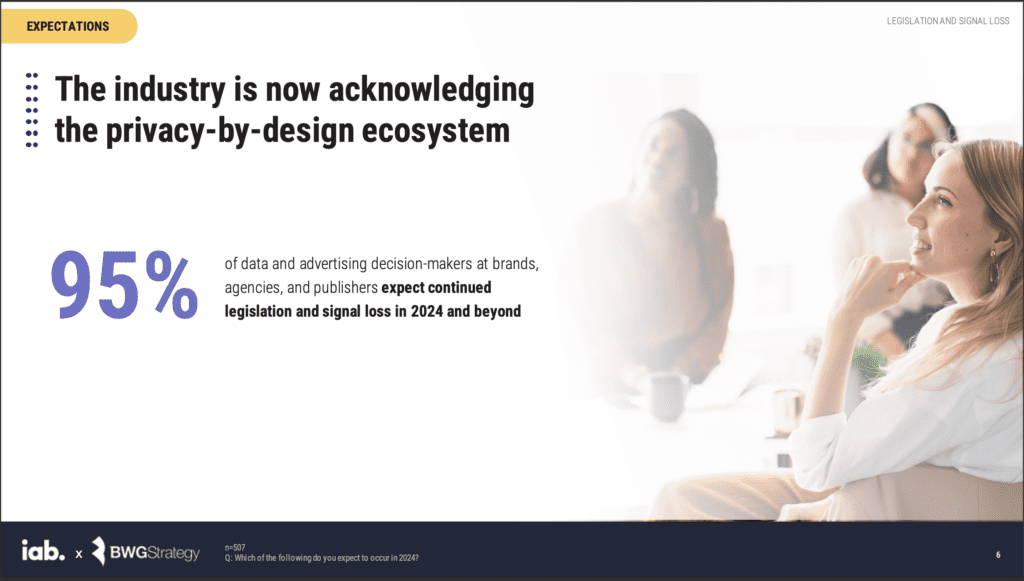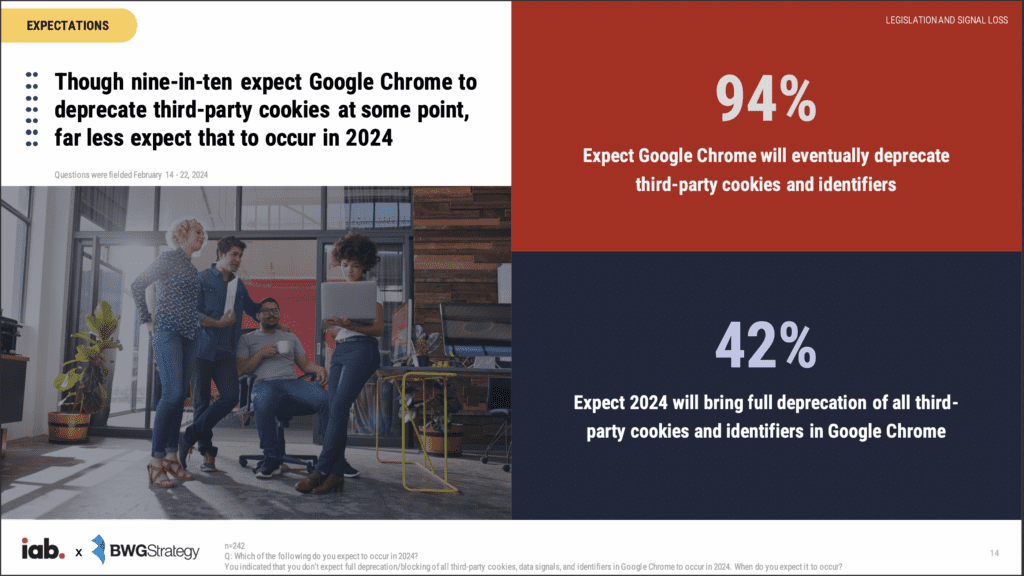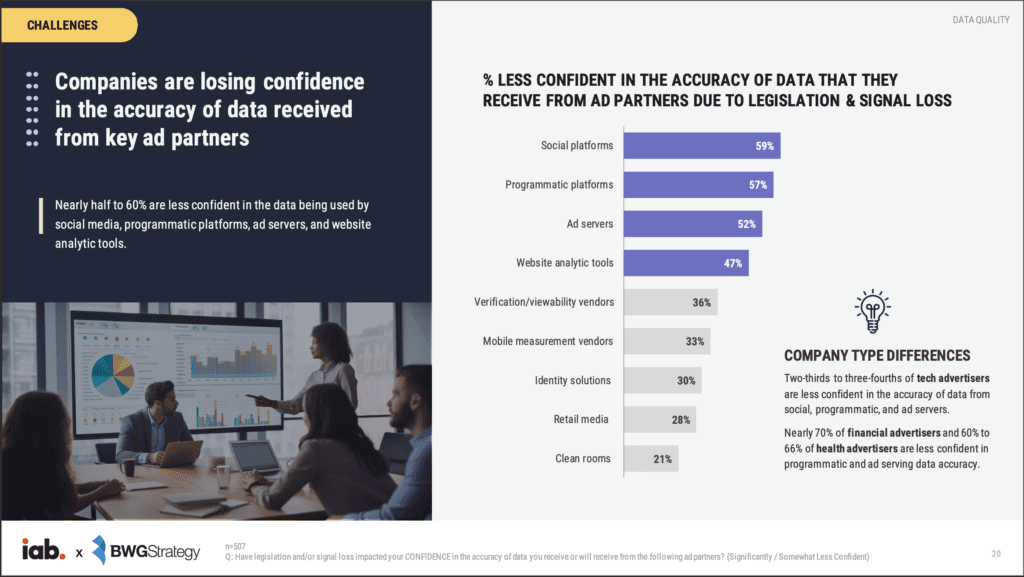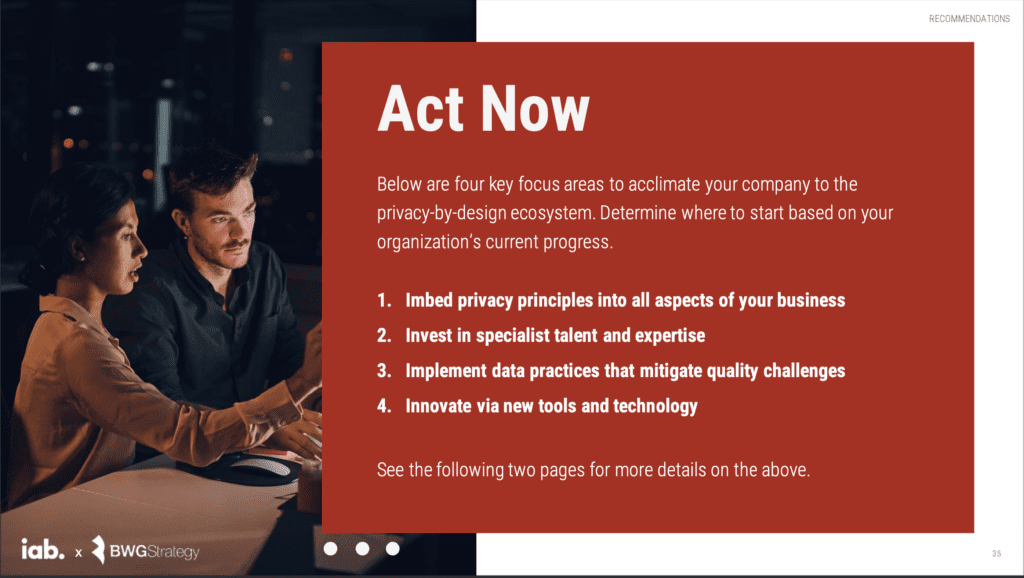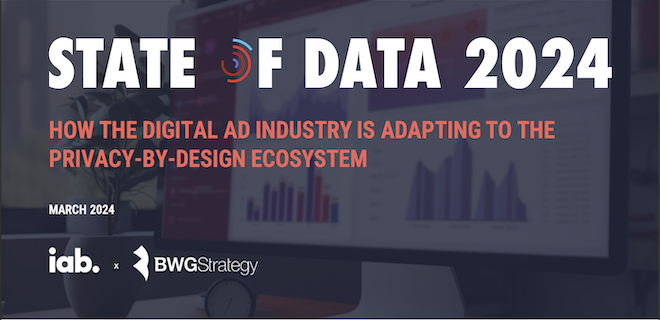
The IAB’s State of Data Report 2024 highlights a privacy-focused industry grappling with reduced data availability, resulting in significant organizational shifts and a focus on first-party data.
The IAB releases its State of Data Report every year to understand how the industry is tackling data evolution. This year’s study reveals that the digital advertising industry has acknowledged the lasting impact of data privacy changes and signal loss, but these have magnified measurement and addressability issues.
Consequently, the current state of data has made significant organizational changes, including hiring experts, training staff, forming specialized teams, enhancing legal and technological capabilities, and revising advertising strategies to adapt to the altered addressability, measurement, and overall landscape of digital advertising.
While beneficial, the industry’s shift to a privacy-first approach has reduced the availability of high-quality, usable data. This does not necessarily mean that aligning consumers’ needs with advertising goals is crippling the industry. It just means that as the industry changes, there are going to be growing pains.
Deterministic data is a marker of the past. Now publishers and advertisers are focusing on AI-based probabilistic techniques and embracing contextual advertising and advanced attribution methods. Advertising budgets now favor channels like CTV, retail media, and social media, allowing for personalized use of first-party data, yet interoperability challenges persist.
Where does that leave us?
The Signal Loss Blues
According to the IAB’s data report, the melancholic strum of signal loss will persist in 2024. Ninety-five percent of decision-makers in advertising and data at brands, agencies, and publishers anticipate ongoing signal loss.
This is further exacerbated by the fact that many industry stakeholders know that privacy laws coming this year will make it harder to create personalized advertising in those specific states.
Despite the challenges, the industry is demonstrating remarkable resilience in adapting to the privacy-focused ecosystem. The data reveals that they are making strategic decisions to navigate this new normal, instilling confidence in the industry’s ability to evolve.
Legislation and signal loss have affected the makeup and structure of organizations for 82% of respondents. Nearly 80% are currently training or planning to train their staff in data and privacy-related topics, while half of companies (49%) are establishing or planning to establish dedicated teams and departments and hiring or planning to hire external subject matter experts (48%).
Will the Cookie Crumble in 2024?
If you ask the industry stakeholders in the IAB’s State of Data Report, the cookie will crumble, but most think it won’t happen in 2024.
Google’s Privacy Sandbox has been preparing for Chrome’s cookie deprecation for quite some time. But after they started deprecating 1% of third-party cookies, critics came out of the woodworks to say the industry is not quite ready. Plus concerns from the CMA may delay Chrome’s timeline. It seems those surveyed in the report agree.
As written in the report, “though nine-in-ten expect Google Chrome to deprecate third-party cookies at some point, far less expect that to occur in 2024.” While the majority of surveyed participants agree that Chrome cookie deprecation will happen someday, only 42% believe it will happen in 2024.
But are publishers and advertisers testing the Privacy Sandbox? The survey says about 57% of participants are currently testing or planning to test it in 2024. Awareness of individual Privacy Sandbox APIs closely follows the overall initiative. The Attribution Reporting API is expected to be the most recognized, reflecting advertisers’ keen interest in assessing campaign performance and ROAS.
Diminished Data Quality
Brands, agencies, and publishers acknowledge significant constraints in data collection, leading to lower quality insights into crucial consumer data like behaviors, PII, location, and preferences, and causing delays in data acquisition.
An SVP from an agency noted a decline in performance due to data signal loss, resulting in reduced audience quality and increased cost per conversion. Seventy-two percent anticipate decreased access to browser history, real-time signals, PII, and location data, while 61% foresee challenges in gathering demographic, user preferences, and behavioral information from third-party sources.
Lower data quality and accuracy are hindering measurement effectiveness. Nearly three-quarters of companies are facing and anticipating increased obstacles in measurement, crucial for comprehending performance and ROI. This trend is driving ad investment toward walled gardens, where personalized messaging and conversion signals merge to facilitate closed-loop measurement.
Seventy-three percent anticipate a decrease in their ability to attribute campaign and channel performance, measure ROI, track conversions (including post-view), and optimize campaigns. Regarding data quality, 57% of companies expect it to be more challenging to capture reach and frequency.
To remedy this concern, brands, agencies, and publishers enhance data quality by leveraging first-party data and enrichment tools. Additionally, they embrace analytical techniques such as AI, machine learning, and media mix modeling, which rely less on tracking signals and third-party cookies.
What Does the IAB Recommend?
It’s crucial to adopt privacy-by-design not only for compliance but also as a strategic imperative to prioritize consumers’ interests and reinforce our responsibility as industry leaders. By embedding privacy into operations, businesses can address data collection concerns, enhancing consumer trust and loyalty—essential for economic success.
Ignoring privacy risks can result in regulatory fines and damage public trust, harming consumer engagement and economic performance. Companies thoughtfully integrating privacy into operations mitigate backlash and positively influence public attitudes toward advertising.
More specifically the report details four areas of focus:
- Embed privacy principles into all aspects of your business
- Invest in specialist talent and expertise
- Implement data practices that mitigate quality challenges
- Innovate via new tools and technologies
Read the full report here.
